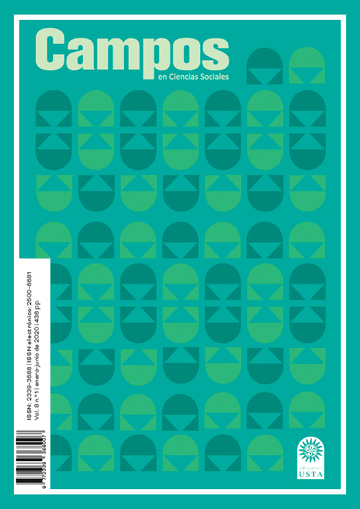La experiencia psicológica del agresor en el conflicto violento
The Psychological Experience of the Aggressor in Armed Conflicts
Abstract (en)
This article focuses on the aggressor’s experience of forgiveness from the perspective of an individual who has violently and unjustly assaulted another, considering the Moral Disengagement Model and the self-forgiveness process that follows the aggression and describing the essential steps to start and complete this process, as well as the most difficult threats or challenges that can lead to a “false” self-forgiveness. We present a qualitative analysis of in-depth interviews with aggressors who were actively involved in the Rwandan genocide, and their victims. The suitability of the basic concepts of the theoretical framework is confirmed in this particular case, both the concepts relating to the presence of moral disengagement mechanisms and those relating to the necessary steps, according to the psychology of forgiveness, to encounter the victims, ask for forgiveness, and open a path for reconciliation.
Abstract (es)
El artículo se centra en la experiencia del perdón desde la perspectiva del individuo que ha agredido violenta e injustamente a otro, a partir del modelo de desconexión moral y el proceso de perdón a sí mismo después cometer la agresión. Además, se detallan los pasos imprescindibles para iniciar y completar este proceso, y los puntos más difíciles o los peligros que pueden llevar a un “falso” perdón a uno mismo. Se ofrece un análisis cualitativo de entrevistas en profundidad llevadas a cabo en Ruanda con agresores que participaron activamente en el genocidio de Ruanda y con sus víctimas. Se confirma la aplicabilidad de los conceptos básicos del marco teórico en este caso concreto, tanto los referidos a la presencia de mecanismos de desconexión moral como los referidos a los pasos necesarios, según la psicología del perdón, para llegar a encontrarse con las víctimas, pedir perdón y empezar un camino de reconciliación.
How to Cite
License
The authors maintain the rights to the articles and are therefore free to share, copy, distribute, execute and publicly communicate the work under the following conditions:
Recognize the credits of the work in the manner specified by the author or licensor (but not in a way that suggests that it has their support or that they support the use of their work).
Campos en ciencias sociales is under a Creative Commons Atribución-NoComercial-CompartirIgual 4.0 Internacional (CC BY-NC-SA 4.0)

Universidad Santo Tomás reserves the patrimonial rights (copyright) of the published works, and favors and allows the reuse of them under the aforementioned license.






